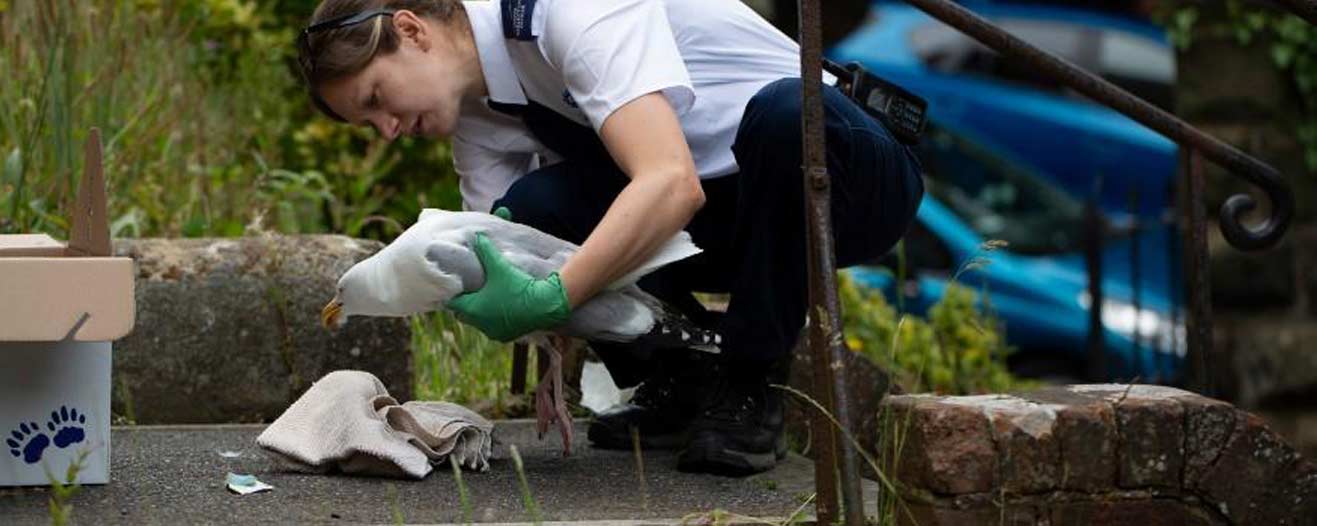- Find a Pet
- Advice and Welfare
- Ways to Give
- Get Involved
- What We Do
- Search
- My RSPCA
- Report a concern
- Gift in Wills
-
Colour modeVivid Calm
- Home
- Advice and welfare
- Wildlife
- Injured wild animals
What to do with injured wild animals
It's not always easy to tell when wild animals need our help, and when it's best to leave them alone. Because wildlife sees humans as predators, they'll usually hide any injuries or illness when they're near us. Monitoring them from a distance can help us see how bad their condition is, and whether it's best to take them for treatment or leave them to recover in the wild. Often, by the time they allow us to get close enough to rescue them, they're much more unwell than they appear.

Wild animals need expert care to give them the best chance of survival, and we can all play an important part in helping to get them the best care as soon as possible. Where it's safe to do so, transporting the animal yourself will get them the help they desperately need in the quickest possible time.
Large sick or injured wildlife
Some animals would be dangerous for you to handle or transport yourself.
If it’s unclear if the animal is injured or not, keep a safe distance, watch and wait for an hour or two. They may recover and wander off. After that time, if it’s clear that they need help, contact us on 0300 1234 999.
Don't try to rescue, handle or transport the animal yourself as they can be aggressive when stressed or injured.
Because cruelty and neglect calls are our top priority, it might take us longer than we’d like to help this animal. We appreciate your understanding.
See below a list of large wild animals:
- Deer
- Wild boar
- Otter
- Badger
- Fox
- Snake
- Beaver
- Seal
- Birds of prey (including swans, geese, herons, gulls and owls)
- If the bird is dead, please report it to DEFRA.
- Whale, dolphin or porpoise
- If they are alive - keep a safe distance and don't touch the animal. Ring the British Marine Divers Rescue on 01825 765546.
- If they are dead - call the Strandings hotline on 0800 6520333.






